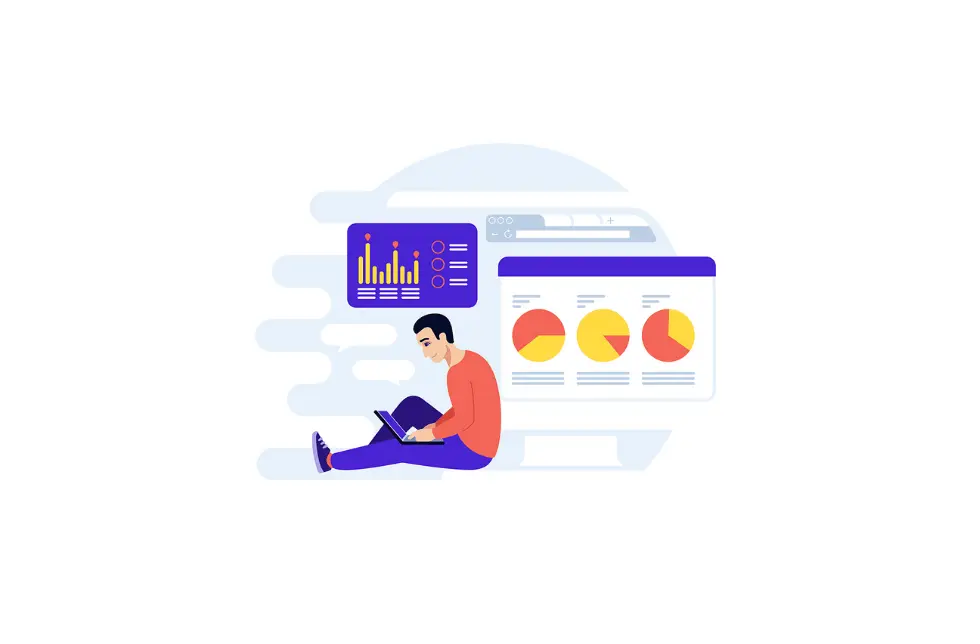With the ever-increasing workflow and data management complexity, an ecommerce ERP solution has become a critical tool in a digital merchant’s tech stack. ERPs allow retailers to consolidate various business functions and continuously maintain the transparency of enterprise operations, which is crucial for any growing business.
However, enterprises can reap even more benefits from their ERP if they integrate it with other software systems. In this article, we explore the benefits of ecommerce ERP integration, describe common ERP integration options, and share some practical tips on how to conduct such an integration successfully.
Why integrate ecommerce ERP with other business systems?
As mentioned earlier, ecommerce ERP integration enables merchants to consolidate data from disparate business processes, such as logistics, HR, finance, and others, via pre-built connectors or APIs. Consequently, ecommerce ERP becomes a single source of truth in the organization, which may bring the following business benefits:
Enhanced productivity
Integrating ecommerce ERP and other digital systems typically implies workflow automation, which naturally decreases the manual data input. This allows enterprise employees to perform day-to-day activities faster and, at the same time, maintain a high quality of work.
Reduced errors
Process automation and elimination of manual data entry reduce the number of errors and duplications in the data from ecommerce ERP. This way, retailers can significantly improve the quality of reporting and, consequently, decisions they make.
Improved customer service
Since ecommerce ERP integration helps employees work faster and make fewer mistakes, they can serve more customers and provide each with a more personalized experience. This may dramatically increase customer satisfaction and, as a result, overall business profitability.
What are the options for ecommerce ERP integration?
Now, after discussing the benefits of ecommerce ERP integration, let’s look at the main types of ERP integrations that a merchant can develop:
Ecommerce ERP and digital storefront
Ecommerce enterprises can integrate ERPs with sales channels, be it websites or mobile apps, to connect back-office operations with customer-facing processes. This way, a merchant can better streamline the checkout process and ensure that relevant data from the customer-facing channels is easily available to the relevant enterprise departments.
Ecommerce ERP and CRM
By integrating ERP and CRM systems, enterprises combine diverse data from activities such as manufacturing, logistics, sales, and marketing. This enables marketing and sales teams to quickly obtain data on purchase history, inventory, and suppliers and provide better, more personalized customer service.
Ecommerce ERP and business intelligence (BI)
Considering that ERPs accumulate and process large amounts of data that can fuel business decisions, retailers shouldn’t miss the opportunity to analyze it. For example, a merchant can integrate their ERP with BI software to generate various reports, discover hidden patterns in datasets with data mining, or even use predictive modeling to predict future demand or market trends.
How to perform a successful ecommerce ERP integration?
Here are some tips that can help an enterprise when developing an ERP integration:
Formulate goals and business requirements in advance
A clear understanding of the project’s aims and requirements is a critical factor that directly affects the integration’s success or failure. After all, how can a merchant even define ecommerce ERP integration as successful without understanding its goals? In the meantime, precise goal setting would help an enterprise develop a realistic and practical ERP integration plan.
To begin with, we recommend decision-makers surveying their IT specialists and managers of departments whose work would be directly affected by the integration. For instance, if a merchant plans to integrate ERP with CRM, the opinions of sales and marketing teams should also be taken into account.
In particular, as part of this preparatory phase, enterprise employees may be asked the following questions:
- Why do we need this or that type of integration? How will it help us solve our specific business challenges?
- Can we build the necessary integration ourselves or is it better to delegate it to a third-party developer?
- What KPIs should we use to measure project success?
- Should we train employees after the end of the project?
- Should we update our security policies?
Ideally, enterprise employees should also map out all processes and data flows that can be affected by the integration. This way, a merchant can gain a better understanding of connections between various business processes and, thereby, define ecommerce ERP integration goals and requirements more accurately.
Prioritize the most beneficial integrations
If a merchant decides to develop several integrations in one go, we would recommend keeping them to a minimum. The thing is there is no need to connect all your digital systems with ERP, becase data overflow can be as harmful as data shortage, only complicating analytics and decision-making.
Therefore, enterprises should prioritize their ideas for ERP integration, prioritizing those bringing the most prominent and practical benefits. For example, an enterprise can develop an integration with CRM or BI and only then, if needed, connect ERP with eSourcing or HRM software.
Choose the right approach to ERP integration
Depending on their needs and goals, enterprises can choose different approaches to ecommerce ERP integration, because each has its specifics and pitfalls. For instance, developers can set up integrations using dedicated integration tools, via point-to-point integration, by creating an enterprise service bus (ESB), or developing custom integrations from scratch. When choosing the integration approach, merchants must verify its relevance to their specific business case and ensure that members of their IT department are familiar with its risks and best practices.
Perform integration testing
After the integration is completed, an enterprise should not immediately get its ecommerce ERP on the road. Instead, it is better to conduct a series of tests and identify possible errors and inconsistencies, for example, in data exchange between ERP and other business solutions. Thus, merchants can ensure that the integration works as it should and does not jeopardize the performance of the consolidated digital ecosystem or its individual components.
Consult experts throughout the project
If a merchant understands that its in-house team cannot perform integration or at least some of its steps, the enterprise may seek assistance from a third-party ecommerce ERP consultant. If needed, a qualified consultant can help analyze the enterprise’s requirements, build an integration strategy and plan, and, if necessary, be involved in the project as a full-scale technology partner.
Final thoughts
Today, an enterprise that uses an ecommerce ERP can gain even more value from such software by integrating it with ecommerce channels or other digital systems such as BI and CRM. However, ecommerce ERP integration is a very challenging task. To ensure project success, enterprises should clearly define their business requirements, prioritize the most beneficial integrations, choose the right approach to development, and run integration tests.
Image credit: Aksenov Roman





